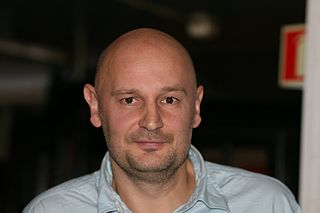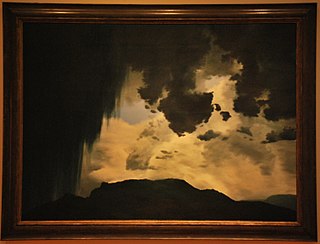A Quote by Werner Herzog
Perhaps I seek certain utopian things, space for human honour and respect, landscapes not yet offended, planets that do not exist yet, dreamed landscapes.
Related Quotes
One problem with people is that as soon as they fill a space it's them you see and not the space. Large, desolate landscapes stop being large, desolate landscapes once they have people in them. They define what the eye sees. And the human eye is almost always directed at other humans. In this way an illusion is created that humans are more important than those things on earth which are not human. It's a sick illusion.
I've dreamed landscapes for years, and my dreams play an enormous role in my work. In fact, when I first started doing landscapes I felt insecure about painting in this style, and the dreams were like positive omens for me, and I've done a few paintings that were exact replicas of images that came to me in dreams.




































